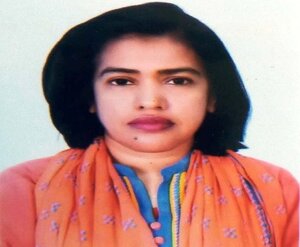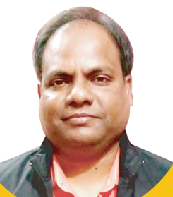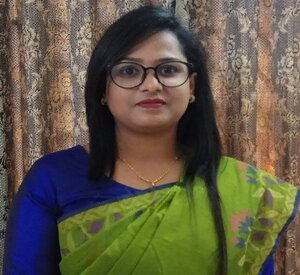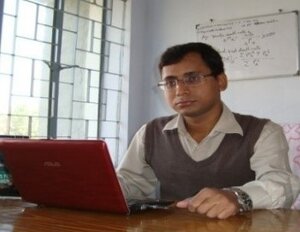1 – Background
Institutions to support intensification, integrated decision making and inclusiveness in agriculture in the East Gangetic Plain (LWR-2018-104)
Overview
The overall aim of this project was to develop capacity within district, state and national agencies in the East Gangetic Plain (EGP) so that they can identify and consistently promote institutions that foster intensification, integration and inclusiveness. The project focuses on three main areas: the institutions for transferring knowledge to farm households; the institutions and activities related to risk management by rural households; and those institutions and practices related to water rights. The geographical scope is Bangladesh, India (Bihar and West Bengal) and Nepal.
‘Institutions’ is a term used in economics to describe both the formal and informal sets of rules that shape incentives. Well-designed institutions have rules that are harmonised and result in low cost participation. Some institutions can also increase the opportunities for greater inclusiveness, especially if rules are crafted around the needs of specific groups, like women and tenant farmers.
A critical question is how institutions, in their various forms and scales, can simultaneously and successfully promote the intensification, integration and inclusiveness, the ‘3 I’s’, in the EGP?
The outcomes from the project focused on creating additional capacity within district, state and national agencies for designing institutions that go beyond encouraging intensification of agriculture at a particular location. Rather, that the institutions chosen and promoted by agencies will relate local choices to the wider trade-offs around resource use in the region and seek to optimize across those trade-offs. The users of the ultimate output, the ‘3 I’s’ Framework, will be policy makers and leaders within implementation agencies.
The attention to inclusiveness across three domains (knowledge transfer, water property rights and risk management) will specifically benefit marginalized groups, such as women and girls in agriculture. The knowledge transfer approaches will be used that are sensitive to the needs of this cohort. There will be improved understanding of how water institutions can be changed to make them more amenable to the needs of women. Risk management approaches will take into account the distinctive requirements of women and girls.

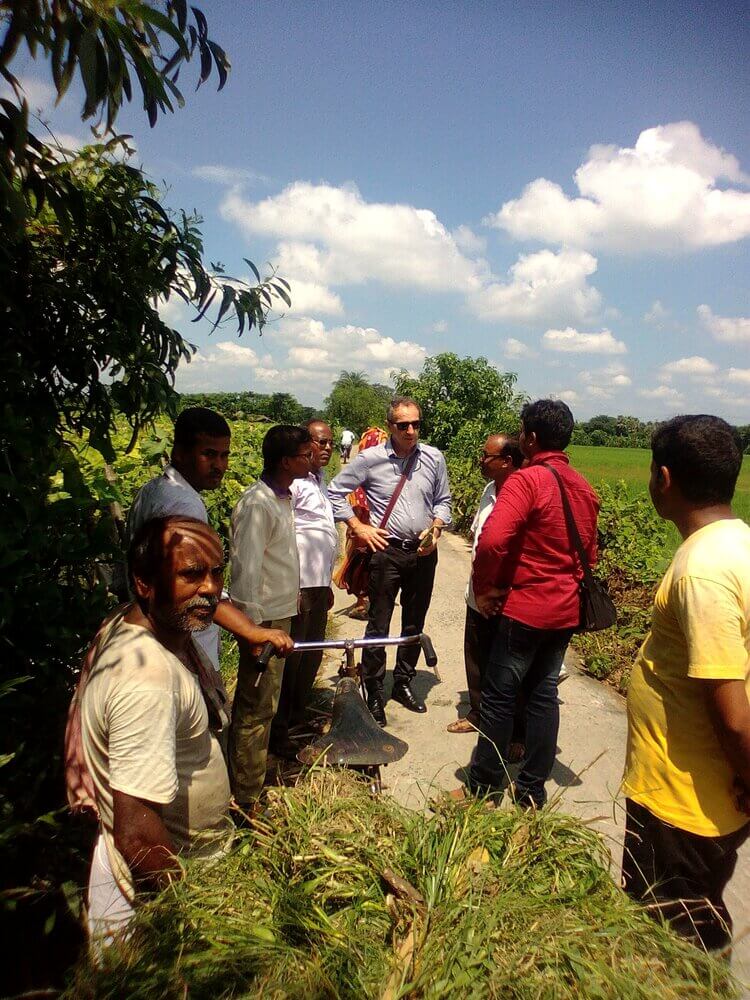
Objectives
1. To create an understanding within agencies of the existing institutions that influence farm-level choices across local and district scales against specific national objectives.
2. To empirically evaluate the performance of different institutional designs across three domains, using economic efficiency, equity and environmental sustainability as yardsticks.
3. To foster collaboration with and within state, district and national authorities by developing an agreed evidence-based framework for shaping institutions that promotes intensification, integration and inclusiveness.
4. To create institutional field sites where the benefits of institutional change can be showcased and monitored beyond the life of this project.
Objective 4 was unable to be completed due to the COVD-19 pandemic. Therefore, from this point on Objective 4 is not discussed.

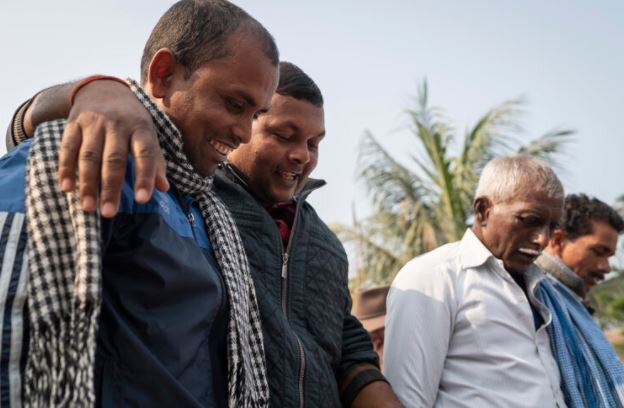
Planned activities and outputs
Activities were planned for each objective and outputs were identified. Due to the COVID-19 pandemic some of the activities were modified or cancelled. Objective 4 and associated activities were all cancelled. Detailed descriptions of the activities for each objective are in Section 6 – Achievements against activities and outputs/milestones in the final report.
OBJECTIVE 1 ACTIVITIES
Map the overall institutions that influence farmers’ incentives to change production in Nepal, Bangladesh, Bihar and West Bengal, using expert local and regional knowledge
Create maps that reveal the institutional influence on particular segments of farmers, specifically, women farmers and tenant farmers.
The key outputs from these activities were:
An institutional map of jurisdictions reflecting the decision environment of ‘average’ farmers
An institutional map of jurisdictions reflecting the decision environment of women farmers and tenant farmers.
OBJECTIVE 2 ACTIVITIES
Empirically measure the performance of institutions that aim to transfer new knowledge to farmers and detail the gender-sensitivity of different models of information transfer
Measure the impact of alternative institutions for water (e.g. landholders versus tenants; women farmers versus men) on the use of other inputs in agriculture and how limiting some rights can help sustainable management water at different scales
Empirically measure the performance of different institutional set-ups for helping farmers deal with risk with specific analysis of the effectiveness for different cohorts, including women farmers and tenant farmers.
The key outputs from these activities were:
A suite of statistical studies showing the relative performance of different institutional set ups (covering knowledge transfer, water property rights and risk management) from the perspective of the ‘average’ farmer, women farmers and tenant farmers
A synthesis of key findings that are (a) digestible to end-users (b) informative to media and other outlets.
OBJECTIVE 3 ACTIVITIES
Use systematic qualitative approaches to develop guidelines for institutional design that effectively transmit information about farmer adaptation across both men and women and in different settings
Develop guidelines for institutions that strike a balance between private and public interest in the use of resources, like water
Develop guidelines for institutional design that fosters coping with climatic and market risks.
The key outputs from these activities were:
A ‘intensification, integration and inclusiveness framework based on consensus that guides the overall design of institutions across the EGP.
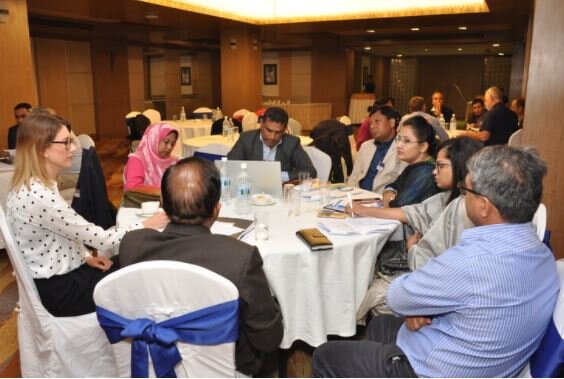
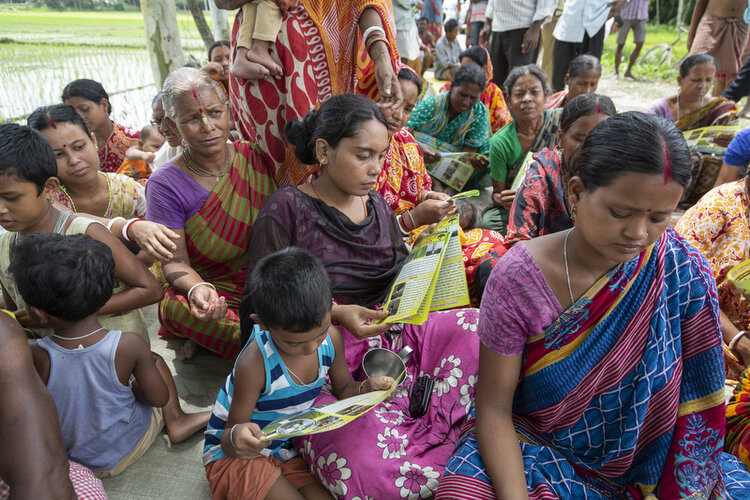
The final report is available here to download; it contains a more detailed summary of project outputs and achievements.
Key partnerships
UniSA coordinated the project with important input from in-country experts. UniSA had significant expertise across all four objectives and accessed Australian policy experts with extensive public sector experience to help inform the dialogue. UniSA utilised Australian private sector expertise related to the four objectives, collectively bolstering regional collaboration and enhanced the dialogue between Australian and south Asian agencies. Additional Australian expertise was sourced from UWA.
Some of the in-country expertise used by research partners and additional expertise was integrated through expert working groups and senior government networks. IFPRI played a major role in undertaking analysis and supporting dissemination and integration of results. The IFPRI team carried out high quality research on policies and institutions related to CASI in all three countries in partnership with government departments, civil society organizations, research institutions and private corporations. IFPRI is widely recognized by policymakers and other stakeholders in the region for its work.
Bangladesh Agricultural University (BAU) provided important in-country support in Bangladesh. In addition to managing specific research activities, BAU used its well-developed government network to both inform the project and to raise its impact.
The Institute for Integrated Development Studies was a key partner in Nepal, assisting to engage stakeholders. Other in-kind expertise within agencies like the Food and Agriculture Organization was also be harnessed to assist regional dialogues in Nepal and the strong track record of IFPRI in this country was also be harnessed.
Team members
The project team had members working in Australia, Bangladesh and India.
University of South Australia (UniSA)
INTERNATIONAL FOOD POLICY RESEARCH INSTITUTE
Food and Agriculture Organization (FAO) of the United Nations













